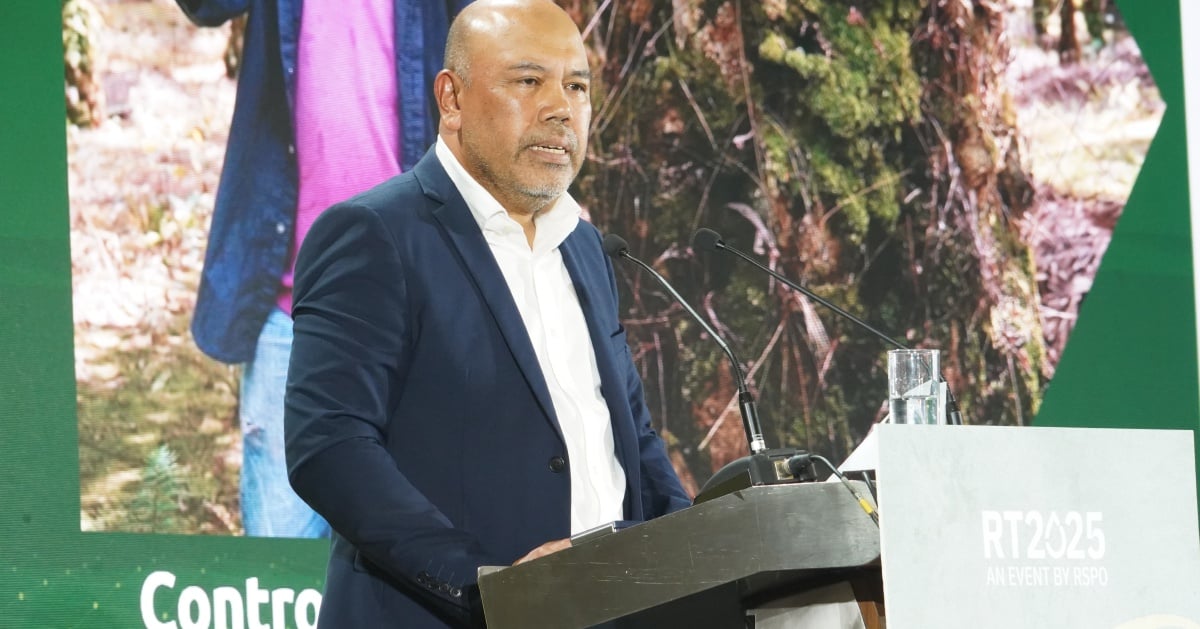KUALA LUMPUR: SD Guthrie Bhd has called for an end to the skewed perception on palm oil that paints it as an environmental villain.
Group managing director Datuk Mohamad Helmy Othman Basha said the relentless negativity towards palm oil has resulted in markets pushing the commodity away.
“Over the past three decades, while palm oil was being painted as one of the great environmental villains, fossil fuel producers — whose emissions are the largest direct cause of climate change — often escaped equivalent moral outrage, despite having far greater, global-scale impacts.
“When fossil fuel use is often excused in the name of ‘energy security’, sustainable palm oil is banned in the name of ‘deforestation’.
“Thanks to all these double standards that developing countries cannot afford to fight against, a new challenge is emerging — one that affects global availability itself,” he said at the roundtable conference on sustainable palm oil here today.
He noted that Indonesia, the world’s largest producer of palm oil, is turning inward.
“The anti-palm oil folk may soon get their wish, the world is already seeing the steady disappearance of palm oil from the global market.”
He added that palm oil was often associated with deforestation, with powerful images to back the alleged claims.
However, the narrative has changed and showed that the problems the world is facing was never all about palm oil.
“We all know that if every hectare of oil palm plantation in the world is returned to forest, the world would be much worse off.”
Deforestation would increase as less efficient replacement crops were planted to meet global vegetable oil demand.
“Socio economic challenges will befall thousands of smallholders and small companies in the producer countries, as they turn towards less financially rewarding crops,” said Mohamad Helmy.
He cited the World Resources Institute and Global Forest Watch that revealed primary forest loss in Malaysia and Indonesia had significantly dropped over the past decade.
Forest loss in Malaysia dropped more than 60 per cent in its peak while Indonesia is seeing a decline in deforestation every year, he added.
This resulted in more than 50 per cent of forest cover for both countries.
“These are verifiable facts. Take for example the European Union Deforestation Regulation.
“A record of declining deforestation and maintaining forest cover at above 50 per cent, landed Malaysia a standard risk rating. And yet, other countries with worse track records and lower forest cover, were rated low risk.
He added that applying a single standard for land use change is unfair. However, applying a more stringent standard on a poor or developing country is economic apartheid.
“The only equitable and ethical solutions for poorer countries are to allow them to use their natural resources and they should be allowed to lose some of their forest to stimulate economic activity for their people,” he said.
On biodiesel blending, he said a rise in blending means more palm oil is used domestically for energy, making it less available for export.
Indonesia is eyeing a B60 biodiesel mandate while Malaysia is aiming towards B30.
“Analysts estimate that if Indonesia reaches B50, that alone could absorb an additional three-four million tonnes of palm oil per year.
“So, while the global North debates whether to ‘phase out’ palm oil, the two biggest producers are blending it for fuel.
“Is this the outcome that the anti-palm oil lobby wanted? The world is losing access to the most efficient, most productive, and most sustainably produced vegetable oil,” he added.
© New Straits Times Press (M) Bhd






